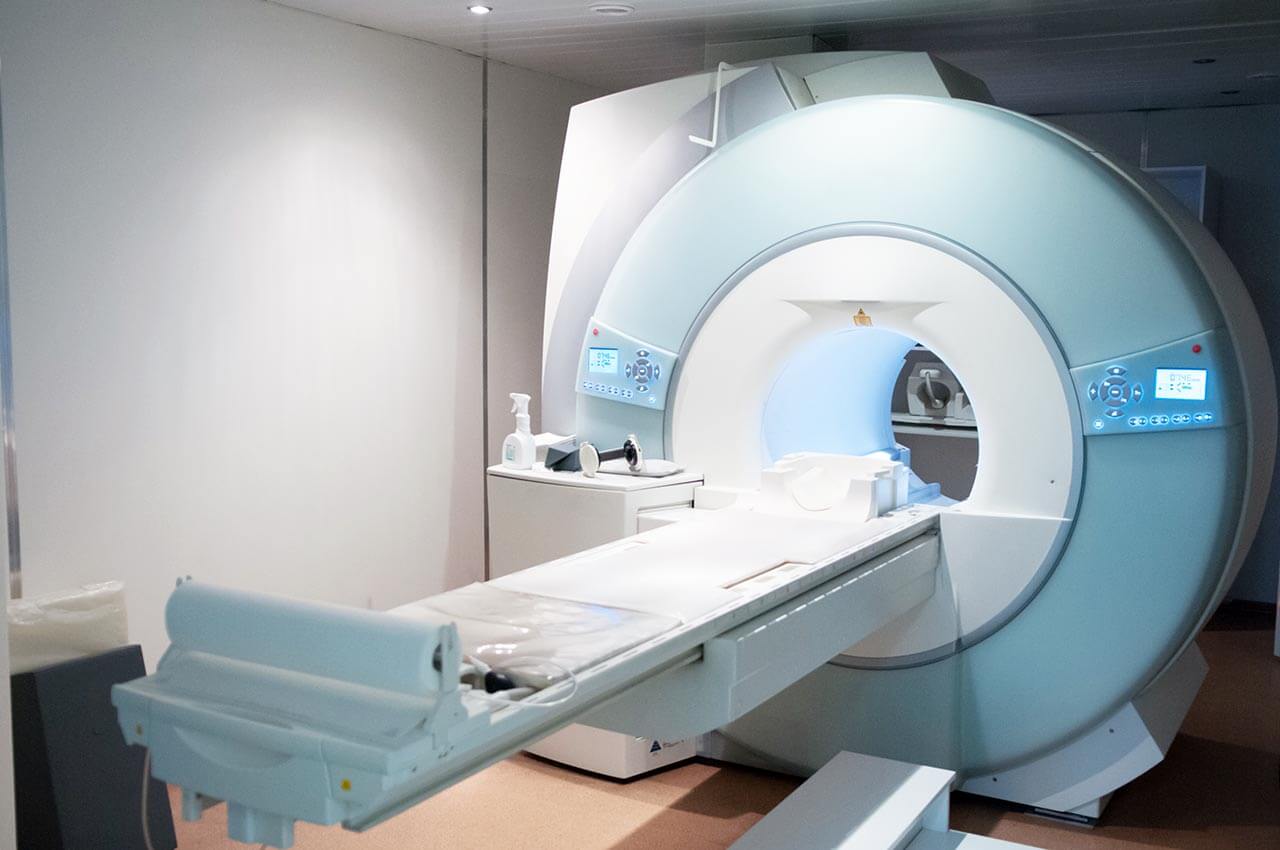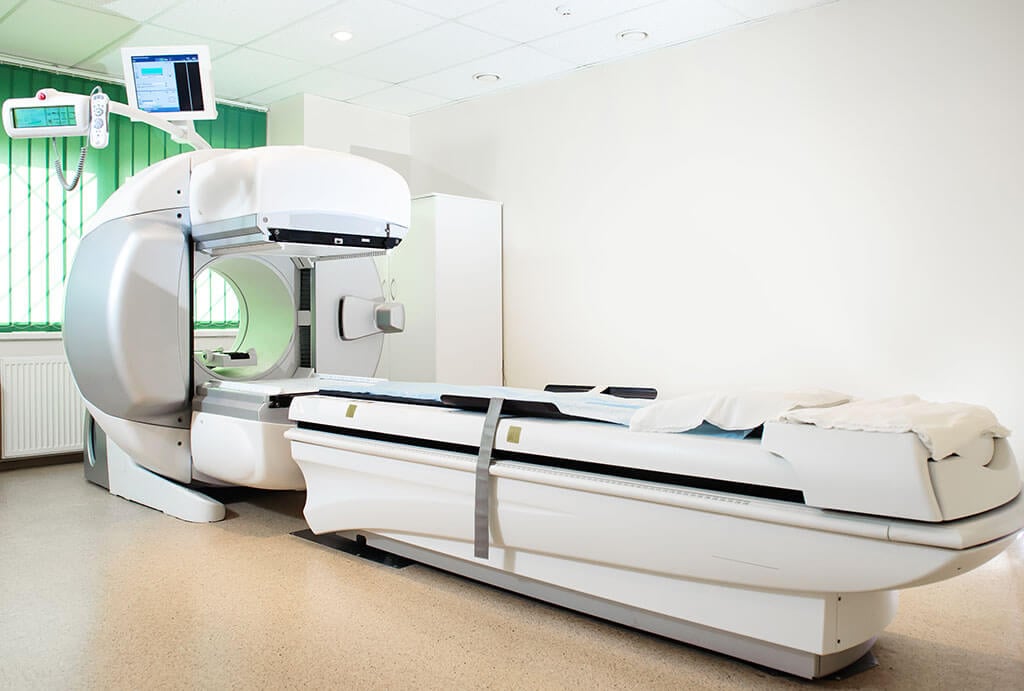
About the Department of Gynecology, Gynecologic Oncology, Urogynecology and Mammology at DKD HELIOS Clinic Wiesbaden
The Department of Gynecology, Gynecologic Oncology, Urogynecology and Mammology at the DKD HELIOS Clinic Wiesbaden offers the full range of services in the fields of its competence. The department's medical team provides both diagnostics and treatment of diseases of the female genital organs and mammary glands. The primary focus of the specialists' work is the treatment of oncological diseases of the female reproductive system. The diagnostic rooms of the medical facility are equipped with advanced ultrasound devices for vaginal sonography and breast sonography, including high-resolution ultrasound units for color Doppler sonography, 2D and 3D duplex sonography. The department provides conservative and surgical treatment. The operating rooms of the department comply with modern hygiene and safety standards. They have all the required equipment to perform classic open and sparing minimally invasive surgical procedures. The rich clinical experience of the department's gynecologists allows them to perform surgery of any complexity, achieving an excellent treatment result. The department is headed by Dr. med. Gabriele Huhn.
Special attention in the department's clinical practice is paid to the diagnostics and treatment of oncological diseases of the female genital organs. The doctors mostly deal with the treatment of patients with uterine, cervical and ovarian cancers. In case of suspected cancer, the diagnostic protocol includes laboratory tests, high-resolution ultrasound, Doppler ultrasound and biopsy. If the results of these diagnostic tests are not enough to make an accurate diagnosis, gynecologists resort to interventional methods, for example, hysteroscopy and colposcopy. After assessing the diagnostic results, gynecologists, together with oncologists, chemotherapists, radiation therapists and other specialists, develop an optimal treatment regimen adapted to the clinical indications of a particular patient. The first-line treatment for female genital malignancies is surgical resection of the tumor. Small tumors are resected using laparoscopic surgical techniques. Such laparoscopic operations are performed on an outpatient basis, which eliminates the need for hospitalization. Oncological diseases require a complex therapeutic approach, while monotherapy often does not give an effective result. Taking this into account, the department's specialists supplement the surgical intervention with such conservative treatments as chemotherapy, radiation therapy, hormonal therapy, antibody therapy, immunotherapy and other procedures.
The department's medical team also successfully treats benign gynecologic diseases. The most common of these are uterine fibroids, endometriosis and cervical dysplasia. In addition, the doctors of the department demonstrate good results in the treatment of hormonal disorders, namely, polycystic ovary syndrome, premenstrual syndrome, menstrual irregularities and pathological manifestations of menopause. After the comprehensive assessment of the patient's endocrine profile, the doctor selects the optimal complex of drugs to correct the hormone levels or recommends hormone replacement therapy. The doctors from the Department of Endocrinology are often involved in the therapeutic process.
In the field of mammology, the department offers the full range of diagnostics and treatment of breast diseases. The main focus is on the treatment of breast cancer, which today is one of the most aggressive and relatively common forms of malignant diseases in women. At the diagnostic stage, the specialists use modern diagnostic examinations, including digital mammography, high-resolution sonography, MRI and biopsy. In the case of breast cancer conformation, the patient will receive an individual treatment regimen. The treatment is based on tumor resection, which, if possible, is performed using sparing laparoscopic techniques. To consolidate the results of surgical treatment and to completely destroy the tumor cells remaining in the woman's body, chemotherapy and hormonal therapy are used. The area of expertise of the department's mammologists also includes the treatment of benign breast diseases in women and gynecomastia in men.
The therapeutic options of the department are complemented by the diagnostics and treatment of urogynecologic diseases in women – urinary incontinence and pelvic organ prolapse. The medical care for patients with such pathologies is provided in close cooperation with urologists and proctologists. The specialists mostly manage to achieve a cure with the help of conservative treatment methods (pharmacotherapy, a special course of physiotherapy, biofeedback, etc.), but in certain clinical cases they still have to resort to interventional procedures.
The department's main clinical focuses include:
- Gynecologic oncology
- Diagnostics and treatment of uterine cancer
- Diagnostics and treatment of cervical cancer
- Diagnostics and treatment of ovarian cancer
- General gynecology
- Diagnostics and treatment of uterine fibroids
- Diagnostics and treatment of endometriosis
- Diagnostics and treatment of cervical dysplasia
- Diagnostics and treatment of polycystic ovary syndrome
- Diagnostics and treatment of menstrual irregularities
- Diagnostics and treatment of pathological manifestations of menopause
- Urogynecology
- Diagnostics and treatment of urinary incontinence
- Diagnostics and treatment of pelvic organ prolapse
- Mammology
- Diagnostics and treatment of breast cancer
- Diagnostics and treatment of benign breast diseases
- Diagnostics and treatment of gynecomastia in men
- Other medical services
The department's range of therapeutic services includes:
- Conservative treatment methods
- Drug treatment
- Hormone replacement therapy
- Chemotherapy
- Physiotherapy and biofeedback for urogynecological diseases
- Surgical treatment methods
- Sparing minimally invasive surgery
- Classic open surgery
- Reconstructive surgery after breast cancer treatment
- Other treatment methods
Photo of the doctor: (c) DKD Helios Klinik Wiesbaden





